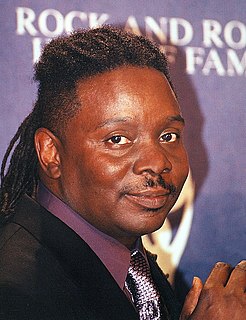A Quote by Philip Bailey
I'm really glad we came up when we did. When we got started, the record companies were concerned with building careers. They made sure you could put on a live show before you put a record out. And if your first album sold 100,000 to 200,000 copies, they were happy, because they figured you had your foot in the door on a way to a long career.
Related Quotes
Well, Led Zeppelin IV! That's it really. I'll tell you why the album had no title - because we were so fed up with the reactions to the third album, that people couldn't understand why that record wasn't a direct continuation of the second album. And then people said we were a hype and all, which was the furthest thing from what we were. So we just said, `let's put out an album with no title at all!' That way, either people like it or they don't... but we still got bad reviews!
My contract with mercury PolyGram Nashville was about to expire. And I never had really been happy. The company, the record company, just didn't put any promotion behind me. I think one album, maybe the last one I did, they pressed 500 copies. And I was just disgusted with it. And about that time that I got to feeling that way, Lou Robin, my manager, came to me and talked to me about a man called Rick Rubin that he had been talking to that wanted me to sign with his record company.
It might sound crazy but you put your money up and take out a little every week. You put yourself on a salary instead of getting $7,000 this week, $20,000 next week and $5,000 the week after that. Take a $1,000. You got your toys, you got everything and your money under your mattress. Break it down and have a salary to take care of you and your family and stretch that money.
When it all started, record companies - and there were many of them, and this was a good thing - were run by people who loved records, people like Ahmet Ertegun, who ran Atlantic Records, who were record collectors. They got in it because they loved music... Now, record companies are run by lawyers and accountants.
Of course, a lot of businesses want to reach students, so I funded the magazine by selling advertising. I sold something like $8,000 worth of advertising for the first edition, and that was in 1966. I printed up 50,000 copies, and I didn't even have to charge for them on the newsstand because my costs were already covered.
































